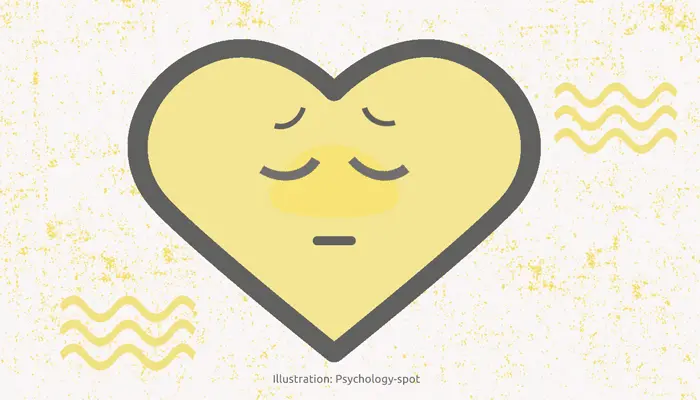
“Satisfaction in individual love cannot be attained without the capacity to love one’s neighbor, without true humility, courage, faith and discipline.”, wrote Erich Fromm in the mid-1900s, to which Zygmunt Bauman adds that “In a culture where such qualities are rare, the attainment of the ability to love is a strange achievement.”
In a world where everything is impermanent and changes at breakneck speed, our relationships are also changing, they have become liquid relationships. Thus have arisen the throwaway loves, so ephemeral and superficial that practically die before being born leaving in their wake a trace of disappointment and emotional wounds.
Consumer love in the era of immediacy
“When quality disappoints you or is not affordable, you tend to redeem yourself in quantity”, Bauman said. That consumerist thought, whether we like it or not, has infiltrated our vision of the world and love. Thus we end up imbued in a tide of relations as short as superficial, in which each holds a promise destined to break as soon as the ideal conditions begin to crack.
“We seek love to find help, confidence, security, but the ill-fated and perhaps endless works of love in turn generate confrontations, uncertainties and insecurities. In love there are no quick fixes, solutions once and for all, any security of perpetual and total satisfaction, there is no guarantee that you will get your money back in case total satisfaction is not instantaneous.”
Bauman was referring to the uncertainty inherent in sentimental relationships that conflicts with the assured and instantaneous satisfaction to which the consumer society has accustomed us.
However, “All those anti-risk mechanisms for sale that our consumer society has accustomed us to expect do not occur in love. Spoiled by smart sellers, we have lost the skill required to face the risks and tackle them by ourselves. Thus we develop the tendency to flatten our amorous relationships with the ‘consumerist’ style, the only one with which we feel comfortable and safe”, he added.
When that satisfaction ceases, either by the natural wear of the object/relationship, because we have become bored or because there is a new version/person more stimulating, we discard the object/partner and we launch ourselves in search for another with the hope of satisfying, even for a short time, our new needs.
The idea of love “until death set us apart” us become obsolete. It has been replaced by “A confluent love, which only lasts as long as – and not for a second more – it satisfies both members of the couple. In the case of relationships, we want the permit to enter including also a permit to leave as soon as we see that there is no reason to stay”, in Bauman’s words.
The traps of throwaway relationships
That change in the way we take on our relationships can seem extremely liberating. There is no doubt. But in treating love as an object we forget that the beginning of a relationship always demands mutual consent, but its end is usually unidirectional. That means that throwaway relationships are condemned to anxiety generated by the fear of being abandoned/discarded.
What at first is perceived as extreme freedom, being together without conditions or ties, without compromises or promises, leads us to a painful ambivalence. We seek love to satisfy our needs for affection, connection and emotional validation, but those throwaway relationships actually take us away from the stability and emotional bond we need.
If we think that acquiring commitments and obligations in the long term is meaningless, counterproductive, foolish or even dangerous to our personal freedom, we won’t do any effort to make the relationship work. If the relationship comes with an expiration date, we won’t even try to connect emotionally trying to understand, really, the other person.
This will lead us to jump from a relationship to another, increasingly dissatisfied, brewing the conviction that love doesn’ exist or that there’s no one out there worthwhile. We point the accusatory finger outwards, when the real problem is that “We do not know what to do to have the relationships we want and, what is worse, we are not sure what kind of relationships we want”.
Mature and committed love as an antidote to consumer love
“Loving means be determined to share two biographies, each one with its different load of experience and memories and its own journey. For the same reason, it means an agreement for the future.
“It also means becoming dependent on another person endowed with similar freedom and willingness to maintain that choice and, therefore, a person full of surprises and unpredictable”, wrote Bauman.
Mature love, according to Erich Fromm, is one in which two people commit themselves without losing their individuality, creating a common space that becomes something greater than them allowing them to grow together by looking in the same direction.
Mature relationships are not exempt from conflicts, but each conflict is an opportunity to grow, get stronger and melt together. In throwaway relationships, conflicts are the excuse to discard that person and look for someone else. This style of avoidant confrontation not only prevents us from growing but condemns us, again and again, to commit the same mistakes.
We must understand that anxiety generated by consumer relationships due to the imminent separation that always looms on the horizon is exorcised thanks to the commitment, dedication and willingness of both parties to strive to solve the problems and conflicts that arise.
Mature love doesn’t guarantee that the relationship will survive, but it’s a guarantee of mutual commitment. And that is usually enough.
Source:
Bauman, Z. (2004) Identidad. Buenos Aires: Losada.



